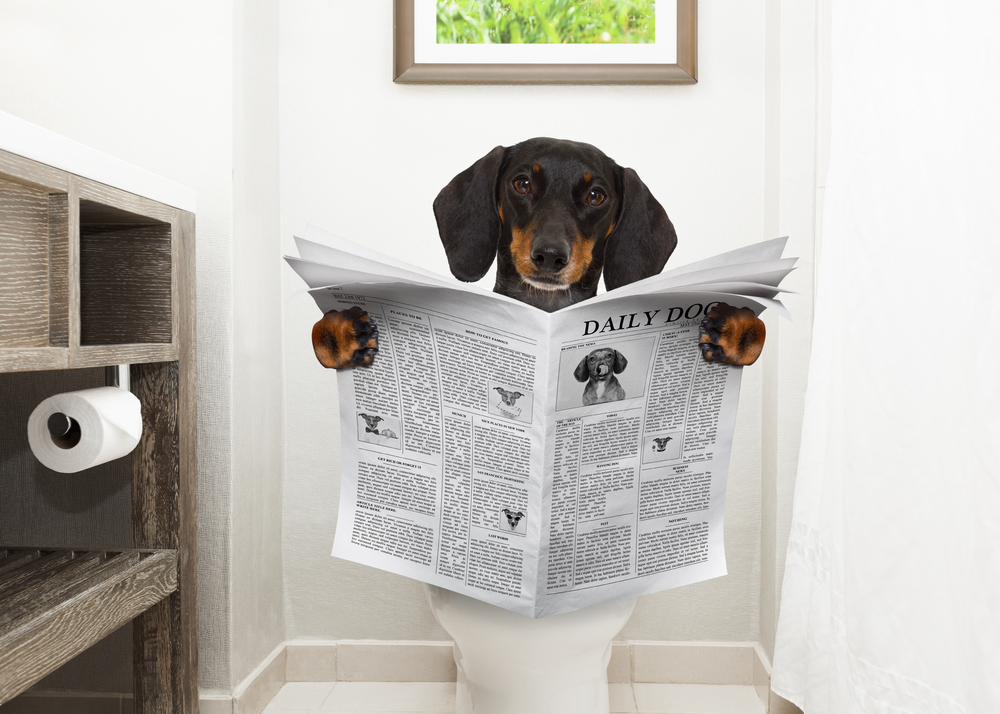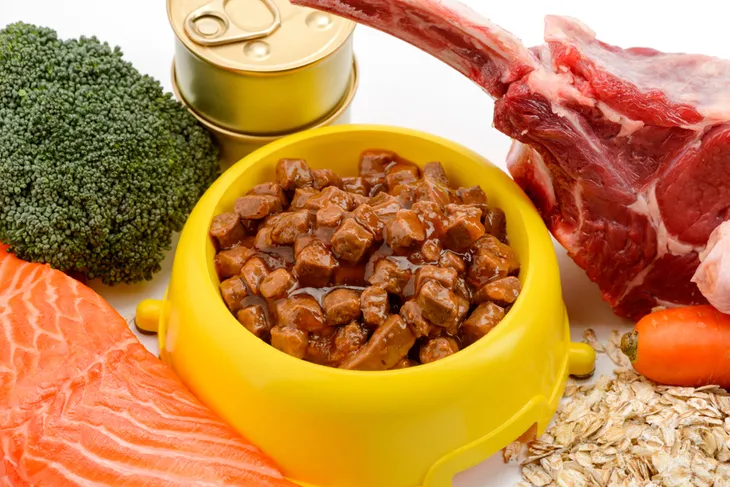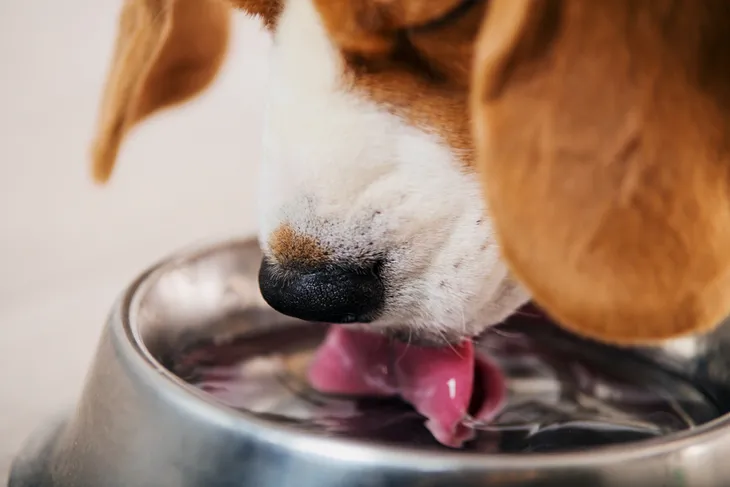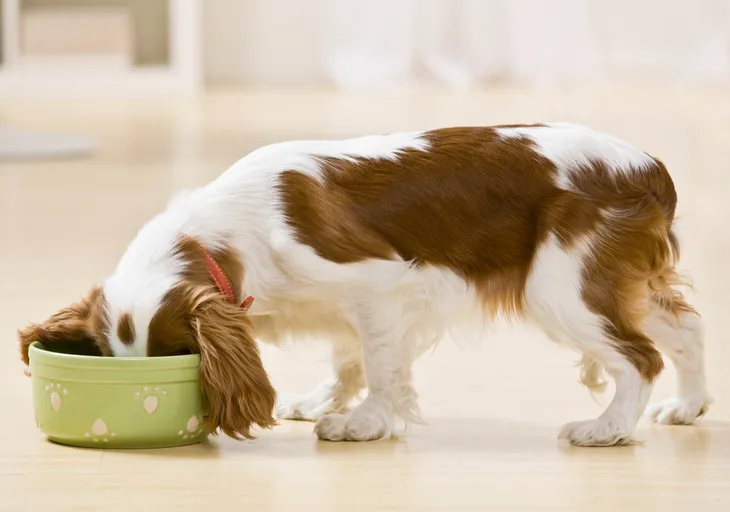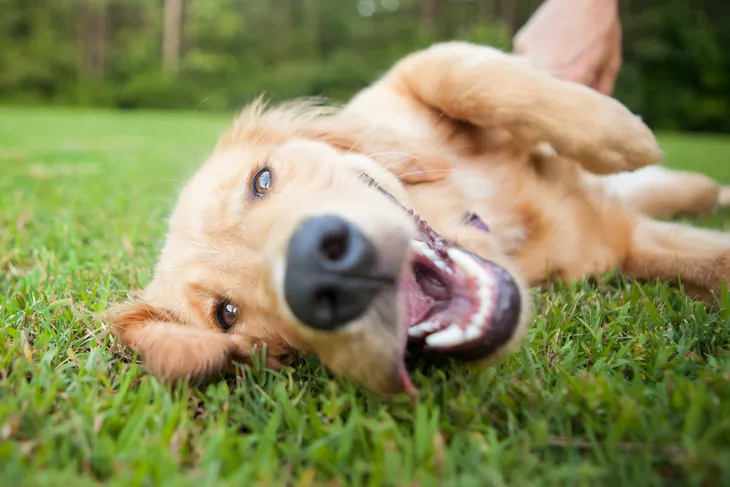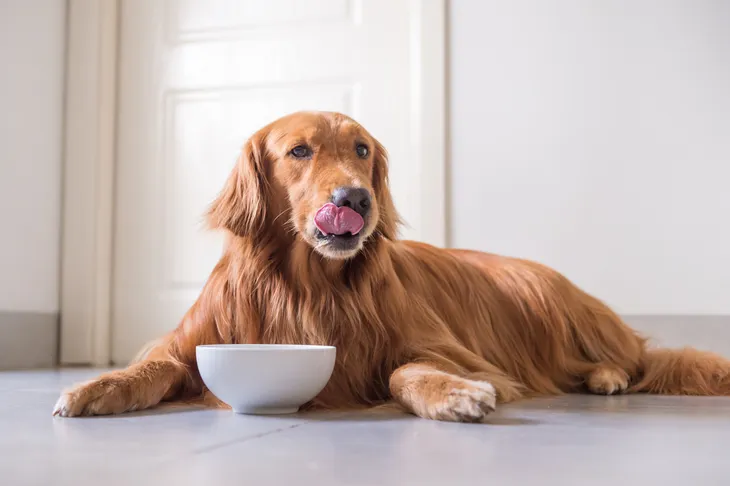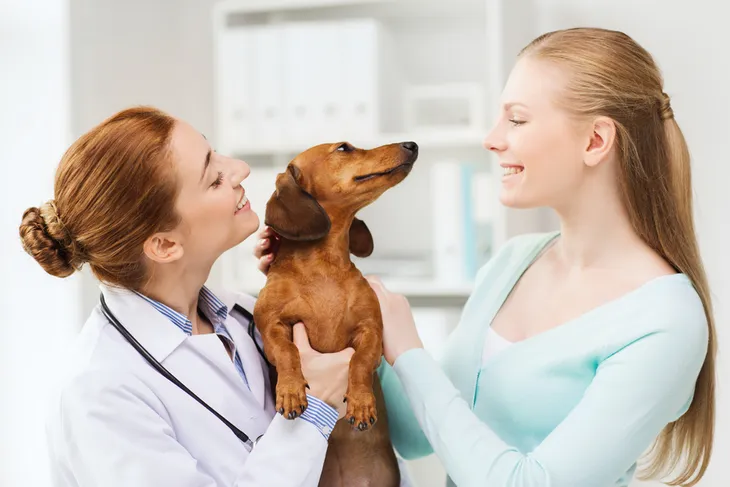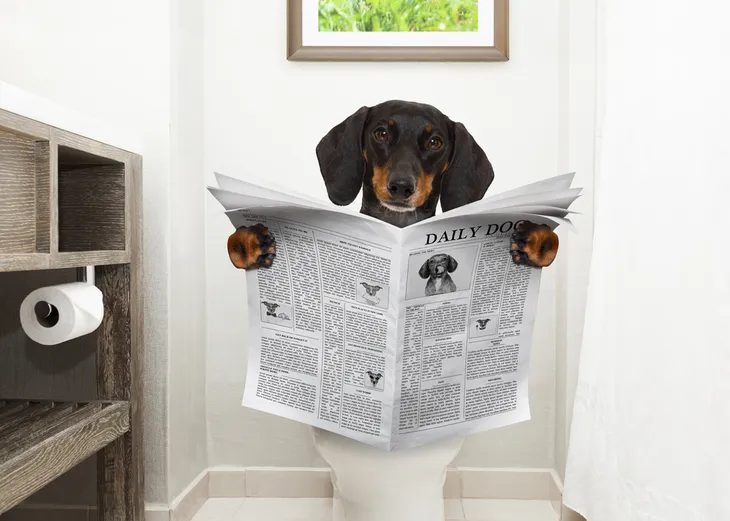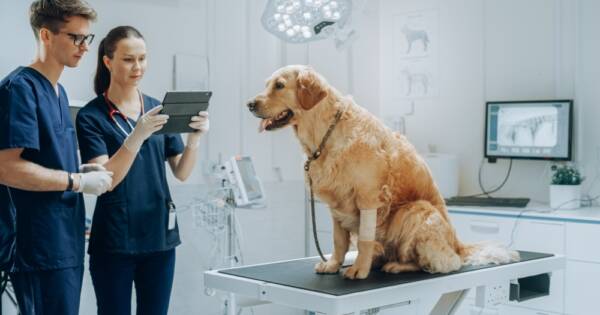Constipation isn’t fun for anyone, including your dog. It refers to the inability to pass a normal stool on a regular schedule. Most dogs pass stool once or twice a day. Constipation isn’t usually serious and can often be treated at home, however, it can also be a sign of an underlying health condition.
The worst part about your dog feeling unwell is that they can’t communicate their symptoms to you. This is why it’s important to know the signs and symptoms of constipation in dogs. Be on the lookout for lack of defecation, hard, pebble-like stool, straining without producing much (or any) stool, discomfort, as well as painful defecation. If you notice your dog is experiencing any of these symptoms, then give these home remedies for constipation in dogs a try!
Note: Never hesitate to speak with your vet as soon as your dog shows any signs of abnormal behavior from constipation to lethargy, lack of appetite, bloating, etc.
Exercise
Lack of exercise can lead to constipation in dogs. So if your pet is inactive it’s time to get them up on their paws and out for a walk.
If they are already active, and lack of exercise isn’t the cause, increasing their fitness regimen may help relieve constipation. Simply going for a walk or jog can help stimulate their digestive system and get it moving again.
Pumpkin
Not only can pumpkin help treat diarrhea in dogs, but it can also help ease mild constipation too. This is due to its high fiber and moisture content.
Instead of baking pumpkin into treats, add pure pumpkin puree (not pie filling!) to their meal for a few days. The American Kennel Club recommends adding 1 to 4-tablespoons of pumpkin to each meal. It’s worth noting, make sure you provide plenty of water for your dog, especially when you increase the fiber content of their food. Dehydration can make constipation even worse.
Wet Canned Dog Food
If your dog usually eats dry kibble, try giving your dog wet canned food. This can also be a great way to subside constipation. The elevated moisture content in canned food can help regulate their digestive system.
Give your dog canned food for a few days and see if it helps their constipation go away. This is an easy (and cheap) fix so it’s definitely worth a try!
Extra Water
Dehydration can cause constipation because their colon absorbs more fluid from the waste being passed through. As a result, this creates dry, hard stools.
To prevent this from happening, make sure you provide your dog with plenty of water. If you can, encourage them to drink more water to help regulate their system, and loosen their stool.
Adding Digestive Enzymes to Their Diet
Digestive enzymes are proteins that help break down your dog’s food into smaller pieces and helps fuel their body by absorbing nutrients efficiently. Your dog already naturally produces digestive enzymes but constipation could be a sign of digestive enzyme deficiency.
If this is the case, you may need to try adding digestive enzymes to their diet. They can also help reduce bloating, gas, and diarrhea, as well as improve nutrient absorption. Speak with your vet to find out if your dog can benefit from adding digestive enzymes to its diet.
Laxatives
For chronic constipation, you may need to give your dog laxatives. That said, make sure you speak with your vet before giving your dog a laxative as improper use can be unsafe for your pet.
A combination of long-term use as well as other conditions such as dehydration can make dog laxatives unsafe. This is why it’s important to only use laxatives for persistent or chronic constipation and only do so if your vet advises it.
Low Residue Diet
Another remedy for persistent constipation is providing your dog with a low residue diet. This type of diet contains ingredients that are metabolized almost completely during the digestive process.
This diet restricts or completely removes high fiber content and as a result, the low residue diet helps your dog have smaller stools. Keep in mind, a low residue diet may only be available through your vet so speak to them about your options.
The Risks of Leaving Constipation Untreated
While constipation is certainly not fun for your dog, it is common and can usually be easily fixed. However, leaving constipation untreated can lead to obstipation.
Obstipation happens when the waste in their colon becomes so dry and hard that it can’t be moved through the colon. As a result, the colon becomes packed with stool and your dog will be unable to pass it, leading to a condition called megacolon.
When this happens, your dog may become lethargic and bloated, may lose its appetite, and may even vomit. All of this can lead to serious complications that may require medical intervention like surgery. Not only will this be painful for your pup, but it can be costly too!
When to See a Vet
If you’ve tried these home remedies for constipation and your dog still fails to produce a bowel movement within 48 to 72 hours of their previous one, then it’s time to take them to the vet. Constipation can be a sign of an underlying condition so it’s best to have them examined by your vet.
Before you head to the vet, prepare a list to provide them with as much information as possible. This includes the last time your dog had a normal bowel movement, any changes in their diet, routine, or environment, as well as any other abnormal symptoms like discomfort, lethargy, or vomiting.
Causes of Constipation in Dogs
So what causes constipation in dogs in the first place? Constipation happens when the digestive process is slowed or impaired.
Constipation can be caused by a variety of reasons. It might be a result of something simple like not enough fiber in their diet, not enough exercise, or even age. Dehydration and stress can also cause constipation. It can even be a result of more serious issues like a tumor or trauma to the pelvis.
How to Keep Your Dog’s Colon Healthy
Now that we know what causes constipation and what to do when your dog is constipated, let’s explore how you can keep their colon healthy. This will help prevent constipation in the future.
Start by ensuring your dog gets a healthy, well-balanced diet. You may also want to consider adding bone broth to their meals as this can increase nutrient absorption. As a result, this can create a great environment for gut flora to thrive. Finally, make sure your dog gets regular exercise to ensure its digestive system is working as it should.
